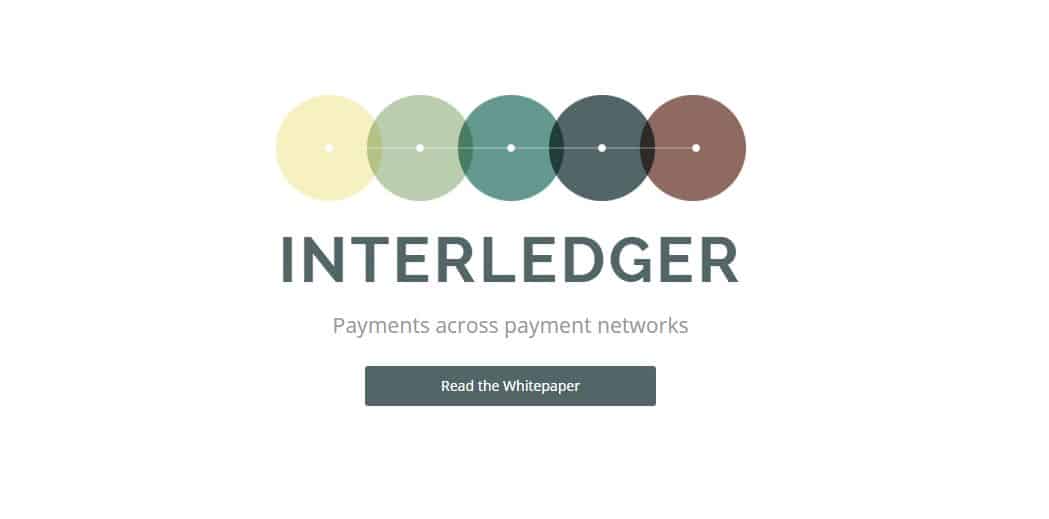Ripple has released a whitepaper and Github repository on ‘Interledger’ payments across payment networks.
Written by Stefan Thomas & Evan Schwartz, they have presented a protocol for payments across payment systems that enables secure transfers between ledgers and allows anyone with accounts on two ledgers to create a connection between them. Ledger-provided escrow removes the need to trust these connectors and connections can be composed to enable payments between any ledgers, creating a global graph of liquidity or Interledger.
Unlike previous approaches, this protocol requires no global coordinating system or blockchain. Transfers are escrowed in series from the sender to the recipient and executed using one of two modes. In the Atomic mode, transfers are coordinated using an ad-hoc group of notaries selected by the participants. In the Universal mode, there is no external coordination. Instead, bounded execution windows, participant incentives and a “reverse” execution order enable secure payments between parties without shared trust in any system or institution.
Fran Strajnar Co-Founder & CEO of Brave New Coin (BNC) comments:
Interledger is designed to be a connector between other ledgers, whether they are traditional fiat currencies or crypto currencies. This could turn out to be a very critical piece of technology that directly influences the work being done by R3CEV, Hyperledger and Chain to name a few. It may also influence, and perhaps facilitate, transfers between fiat ledgers (or accounts) and the bitcoin ledger.
Businesses are still having a hard time getting banking relationships, even from the banks that seem to be investing in Blockchain Technology.
What Ripple appears to be doing is very smart. They are setting up their private token system to interact with other ledgers, even those that have yet to be made. By making Interledger a protocol, Ripple may have provided a bridge for many useful applications. In a way they might be levelling the playing field, and if this protocol gets utilized it brings a lot of confidence to the Ripple tokens and the private Blockchain that secures them.
Ian Allison from IBT writes:
Ripple has been an object of fascination among banks and blue chips almost as long as they have been looking at Bitcoin. Ripple can also claim to have had a regulatory encounter, let’s call it, and has now emerged stronger, arguably setting a standard for compliance conscious financials.
Recently, one of Deloitte’s big competitors KPMG revealed it was hiring anybody that had experience of deploying Ripple at banks.
Spoke said: “What I am noticing more and more as I get closer to this space – is it going to be one protocol that wins the day at the end of all this?
“Nobody knows the answer to this, but there could be room in different contexts for different technologies and different versions of this. Ripple could be very meaningful in a certain context.”
To see whitepaper in full click here.







